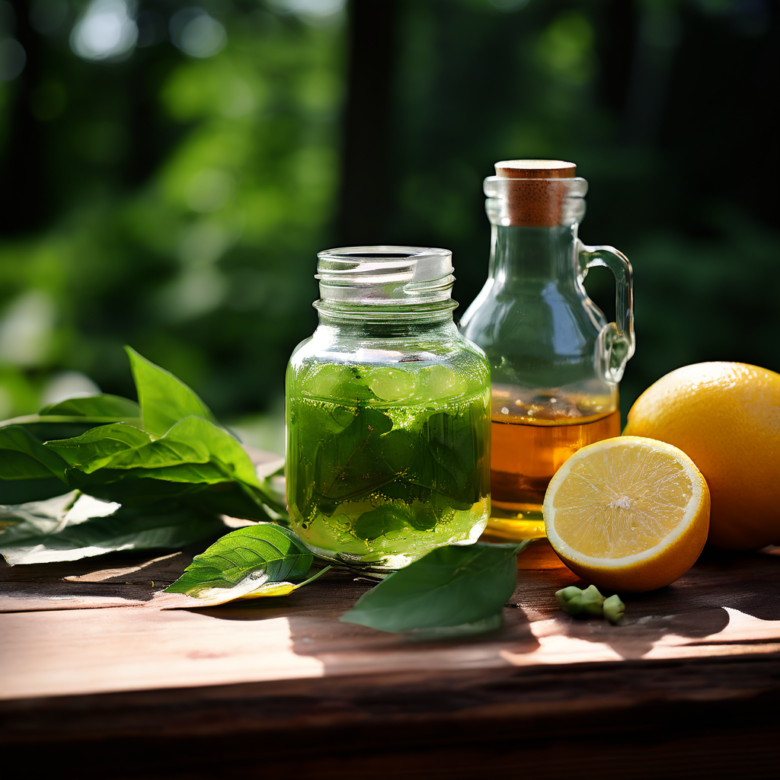Alright, listen up, we’re gonna talk about your gut, and your defenses, the whole shebang, like a good old fashioned brawl.
See, your gut ain’t just a food dump, it’s a party, a wild one with trillions of bacteria, fungi, viruses, the whole damn zoo.
It’s your hidden organ, for digestion, sure, but more importantly, it’s where your immune system flexes its muscles, a good 70-80% of it hangs out there.
Mess that up, and you’re leaving the door open for trouble.
You want good bacteria? Probiotics, get them from fermented foods like yogurt, kefir, or even some kimchi if you’re feeling adventurous, and then you feed those fellas with prebiotics, garlic, onions, bananas, those kind of things.
It’s a simple dance, but crucial for a strong immunity, like a well-oiled machine, but with bacteria, you know.
Now, what you shovel onto your plate, that’s the real deal, that’s your army in the making.
A plant-rich diet, bursting with vitamins and minerals, that ain’t no fad, that’s the bedrock.
It’s not about going all veggie, just get more plants on your plate, get some colors, each representing compounds that help your body, see. Vitamin C in your citrus, berries, peppers.
Vitamin D from the sun, yeah the sun, that big bright ball.
Zinc from nuts, and selenium from the sea, those are the building blocks.
And antioxidants, like you find in berries, tea, and dark chocolate, those are your body guards, neutralizing anything nasty that comes its way.
Fiber, from oats, beans, apples, it feeds the bacteria in your gut, keeps the party going.
Then you got the phytonutrients, that’s a fancy word for plant stuff, from colorful fruits and vegetables, everything from carrots to broccoli, each one adding to your defense arsenal.
Sleep, yeah sleep, it’s not a luxury, it’s like a good drink after a hard day’s work, essential.
Seven to nine hours of solid shuteye, that’s when the body repairs itself and your immune system sends out the proteins called cytokines which fight inflammation, it’s like sending the troops out.
Skimp on sleep, you are handing your immune system a white flag, see.
Lack of sleep raises that stress hormone, cortisol, it suppresses the immune system and you become weak, and those colds and flus come knocking.
Stick to a schedule, relax before bed, leave the phone alone, make your room comfortable and don’t drink that coffee too late and avoid alcohol. And stress, that’s a killer, weakens your defenses.
When stressed, your body produces cortisol, it’s no good.
Mindfulness, meditation, movement, they help regulate that.
Get out and walk, go for a workout, and do some deep breathing to calm your mind, it’s simple but it works.
Movement, that’s also key.
Moderate exercise, walking, swimming, yoga, whatever tickles your fancy, boosts your immune cells’ circulation, it’s like a convoy of reinforcements.
But don’t push it too hard, or you could do more harm than good. Find the balance, consistency not perfection.
Water is obvious, your body needs it like a fish needs water, duh.
Dehydration screws with all your functions, including your immune system.
It’s not just water, though, it’s also electrolytes, sodium, potassium, magnesium, calcium.
Coconut water, herbal teas, and fruit infused water, can help with hydration.
Sunlight, not just for a tan, but for vitamin D, that helps your cells fight infections.
10–30 minutes, a few times a week, and you are good.
Or get a supplement if the sun is playing hard to get.
Lastly, you can always call for backup.
Elderberry, packed with antioxidants, ginger, for inflammation, zinc for your cells, vitamin C, another powerful antioxidant, they’re your buddies in the fight.
Now you also need to know what makes you weak, what you’re up against, that’s part of it too.
Avoid those processed foods, alcohol and smoking, they are all bad news.
The Gut-Immune Connection
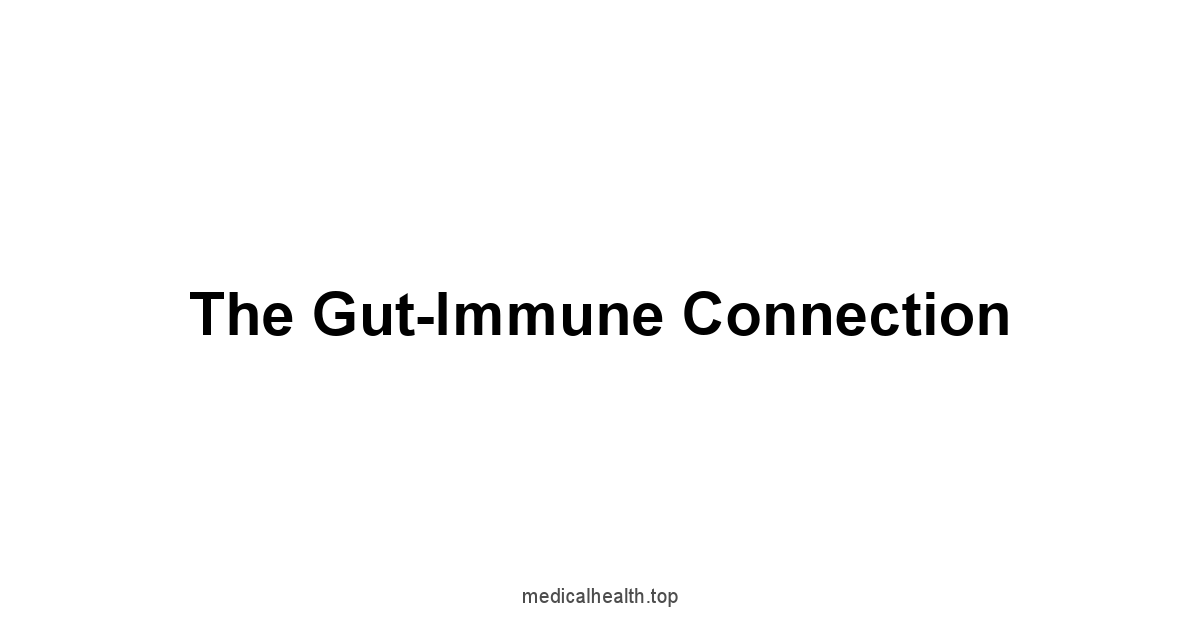
The gut, it’s more than just where your food goes.
It’s a battlefield, a bustling city teeming with life, a complex ecosystem that profoundly impacts your immune system.
The gut and the immune system are linked so strongly it’s hard to see where one ends and the other begins. A healthy gut means a strong immune system.
A neglected gut, a weak one, means your immune defenses are down and leaving you vulnerable. It’s not something you want to take lightly.
You should understand this connection and then you can take control of your health.
Your gut isn’t just about digestion, it’s about defense.
The gut is a major player in your immune response, it houses the majority of your immune cells.
Ignore it, and you’re ignoring a big part of what keeps you healthy.
A balanced gut is a fortress, but a dysregulated one, is an open gate. You need to know how to keep that gate strong.
Understanding Gut Microbiota
The gut microbiota, a community of trillions of bacteria, fungi, viruses, and other microorganisms, is essential to maintaining your health.
Think of it as a hidden organ, one that’s critical, but not visible like your heart or liver.
This vast ecosystem impacts digestion, nutrient absorption, and most importantly, your immune system. You need to keep it balanced.
There are good and bad actors, and it’s all about keeping the balance in favor of the good.
Each person’s gut microbiota is unique, like a fingerprint, influenced by genetics, diet, and environment.
This complex system is not static, it changes over time.
A healthy gut has a diverse microbiome, with a wide range of beneficial microbes.
This diversity helps defend against harmful pathogens and keeps your immune system ready for anything.
Here is a table detailing the types of microorganisms and their roles:
| Microorganism Type | Role in Gut Health |
|---|---|
| Bacteria | Aid digestion, produce vitamins, train the immune system, protect against pathogens. Examples: Bifidobacteria, Lactobacillus |
| Fungi | Help with nutrient absorption and immune regulation. Example: Saccharomyces boulardii |
| Viruses | Can be beneficial in regulating bacterial communities or harmful pathogens. Includes bacteriophages that target specific bacteria. |
| Archaea | Support digestion and nutrient cycling, less understood compared to bacteria. |
Probiotics and Prebiotics
Probiotics are the good guys, live microorganisms that provide health benefits when consumed. These are the reinforcements for your gut.
They are found in fermented foods like yogurt, kefir, and sauerkraut and can also be taken as supplements.
They help balance the gut microbiota and strengthen immune function.
Prebiotics, on the other hand, are like fuel for those good bacteria.
They’re non-digestible fibers that promote the growth and activity of beneficial bacteria.
They are found in foods such as garlic, onions, and bananas.
Think of it as fertilizing the garden in your gut so the good flora can thrive.
The relationship between probiotics and prebiotics is synergistic.
Probiotics introduce beneficial bacteria while prebiotics provide them with the nourishment they need.
Together, they create a robust and diverse gut microbiome. The following list illustrates the top sources:
- Probiotic Sources:
- Yogurt
- Kefir
- Sauerkraut
- Kimchi
- Tempeh
- Miso
- Prebiotic Sources:
- Garlic
- Onions
- Bananas
- Asparagus
- Oats
- Apples
Diet’s Impact on Gut Health
What you eat directly impacts your gut and therefore your immune system.
A diet high in processed foods, sugars, and unhealthy fats can disrupt the balance of your gut microbiota, leading to dysbiosis, an imbalance that favors harmful bacteria. This is where the problems start.
Your diet needs to feed the good bacteria, not the bad ones.
A balanced diet, on the other hand, rich in fruits, vegetables, and whole grains, can promote a healthy and diverse gut microbiota.
Here’s how different food groups affect your gut:
- Fiber: Feeds beneficial gut bacteria, promotes regularity.
- Fermented Foods: Introduce beneficial bacteria, help balance the microbiota.
- Sugars and Processed Foods: Promote the growth of harmful bacteria, disrupt gut balance.
- Healthy Fats: Support gut health, reduce inflammation.
A healthy gut is a cornerstone of a strong immune system.
Take control of your diet, it’s not just about weight, it’s about your body’s defenses.
Power of a Plant-Rich Diet

A plant-rich diet, it’s not a trend, it’s a path to stronger immunity.
Your body needs vitamins, minerals, and antioxidants, and plants are packed with them.
The colors you see on your plate, the reds, greens, and yellows, they all represent powerful compounds that your body needs.
This is what will fuel your immune system to its full potential.
It’s not about becoming a vegetarian or vegan, it’s about putting more plants on your plate and choosing wisely.
Plants are not just empty calories, they’re powerhouses of nutrition, each one offering unique compounds that boost your immunity and overall health.
They help you fight off the invaders and keep your body running strong.
It’s a direct link: better diet, better immune system, period.
You can choose to neglect it or you can choose to fight. It’s your call.
Essential Vitamins and Minerals
Vitamins and minerals, these are the building blocks of a healthy immune system.
Vitamin C, Vitamin D, zinc, and selenium, just to name a few, are crucial for the proper functioning of immune cells.
These nutrients enable your immune system to respond effectively to threats. Without these, your defenses are down. You can’t win a war with an empty army.
A deficiency in these key nutrients can lead to a weakened immune response, leaving you vulnerable to illness.
Here are some key vitamins and minerals and their functions:
- Vitamin C: Supports immune cell function, acts as an antioxidant.
- Vitamin D: Modulates immune responses, important for bone health.
- Zinc: Essential for immune cell development, wound healing.
- Selenium: Acts as an antioxidant, supports immune function.
- Vitamin A: Important for the health of mucous membranes, first line of defense.
Foods rich in these nutrients include citrus fruits, dark leafy greens, nuts, seeds, and seafood.
Eat a variety, get all of these, and your body will thank you.
Antioxidants and Immune Function
Antioxidants, these compounds are your defense against cellular damage.
They protect your cells from the harmful effects of free radicals.
Free radicals, they are byproducts of metabolism and they can damage cells, leading to inflammation and a weakened immune response.
They are not good, you want to get rid of them, and antioxidants do just that.
They are found in abundance in fruits, vegetables, and other plant-based foods.
Here’s a table showcasing key antioxidants and their sources:
| Antioxidant | Food Sources |
|---|---|
| Vitamin C | Citrus fruits, berries, bell peppers |
| Vitamin E | Nuts, seeds, spinach |
| Beta-Carotene | Carrots, sweet potatoes, leafy greens |
| Flavonoids | Berries, tea, dark chocolate, red onions |
| Lycopene | Tomatoes, watermelon, pink grapefruit |
By neutralizing free radicals, antioxidants help maintain the integrity of immune cells and support a balanced immune response.
You need a strong defense, and antioxidants are what you need.
Fiber for a Healthy Gut
Fiber, the indigestible part of plant foods, is not just for digestion, it’s food for the good bacteria in your gut.
It’s a key player in maintaining a healthy gut microbiome.
Fiber promotes the growth of beneficial bacteria and helps regulate bowel movements.
A healthy gut, as said before, is a strong immune system.
Fiber not only helps with digestion, it plays a huge role in improving your immune system.
Here’s a breakdown of different fiber types and their benefits:
- Soluble Fiber: Dissolves in water, helps lower cholesterol, stabilizes blood sugar. Found in oats, beans, apples.
- Insoluble Fiber: Adds bulk to stool, aids digestion. Found in whole grains, vegetables, nuts.
Aim for a diverse intake of fiber from various sources to ensure a balanced and healthy gut.
It’s not about just having enough fiber, you need the right kind, the one your gut will thank you for.
The Role of Phytonutrients
Phytonutrients, these are plant compounds that give fruits and vegetables their vibrant colors and flavors.
They are not vitamins or minerals, but they have a strong effect on your health.
They have antioxidant, anti-inflammatory, and immune-boosting properties.
They are the secret weapons in your fight for a strong immune system.
They protect your cells from damage and can help prevent chronic diseases.
The following list details some key phytonutrients and their benefits:
- Carotenoids: Found in carrots, sweet potatoes, support eye health, act as antioxidants.
- Flavonoids: Found in berries, tea, support heart health, have anti-inflammatory effects.
- Resveratrol: Found in grapes, red wine, has antioxidant properties, may protect against heart disease.
- Sulfides: Found in garlic, onions, have immune-boosting and anti-cancer properties.
- Glucosinolates: Found in broccoli, cabbage, support detoxification, have anti-cancer effects.
Phytonutrients are abundant in a wide variety of plant foods, so eat a rainbow of colors on your plate to get a diverse range of these beneficial compounds. Your body needs them, feed it.
Foods to prioritize
You want to prioritize foods that offer the most benefit for your immune system.
Go for vibrant colors, and choose fresh, whole foods over processed options.
Dark leafy greens, berries, citrus fruits, garlic, and ginger are just some of the powerhouses you want in your diet.
They pack a punch of vitamins, minerals, antioxidants, and phytonutrients.
Here’s a prioritized list of foods for immune support:
- Berries: High in antioxidants and vitamin C.
- Citrus Fruits: Excellent source of vitamin C.
- Dark Leafy Greens: Rich in vitamins A, C, and antioxidants.
- Garlic: Contains compounds with antimicrobial and immune-boosting properties.
- Ginger: Has anti-inflammatory and antioxidant effects.
- Nuts and Seeds: Good source of vitamin E, zinc, and healthy fats.
- Cruciferous Vegetables: Broccoli, cauliflower, contain phytonutrients with immune benefits.
- Turmeric: Powerful anti-inflammatory and antioxidant.
- Sweet Potatoes: High in beta-carotene, a precursor to vitamin A.
- Fermented Foods: Yogurt, kefir, kimchi, to boost gut health.
Make sure these items are on your grocery list and make them part of your meals, your health depends on it.
Sleep and Immune Function
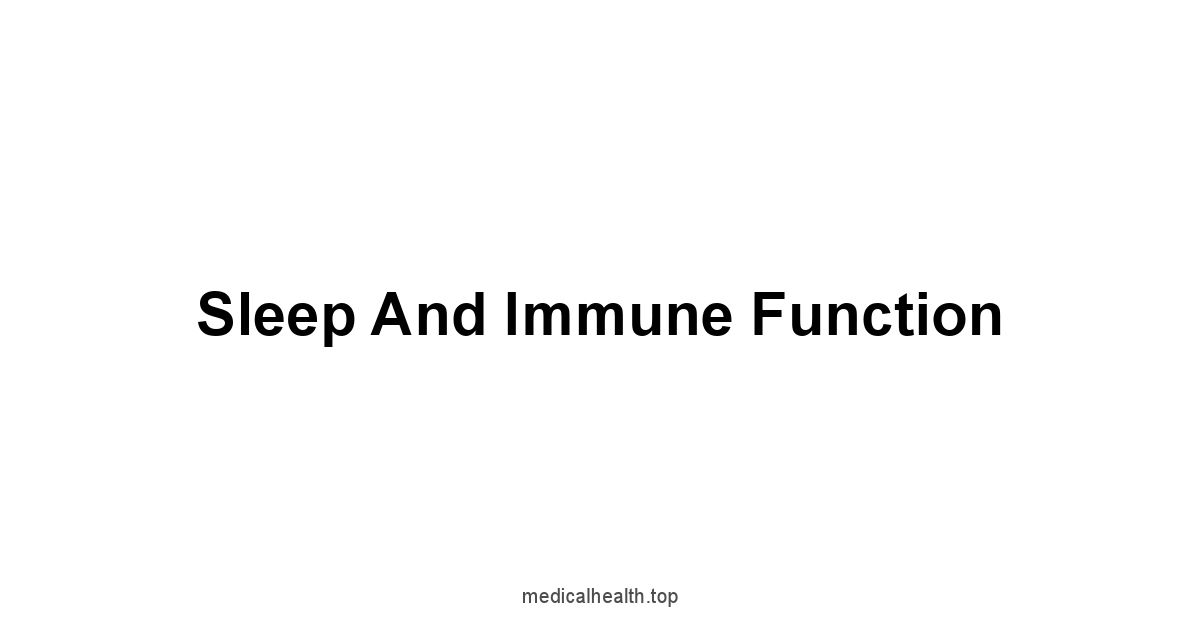
Sleep, it’s not a luxury, it’s as essential as food and water.
A good night’s rest is when your body repairs, restores, and prepares for the next day.
A lack of sleep can compromise your immune system and make you more vulnerable to illness.
If you’re not sleeping enough, your body isn’t at its best, and you can’t win a fight when you’re worn out. It’s that simple.
The connection between sleep and the immune system is direct and undeniable.
When you’re asleep, your immune system releases proteins called cytokines, some of which promote sleep and others that help fight inflammation. Sleep deprivation messes with this process.
You need to make sleep a priority if you want to maintain a strong immune system.
Neglecting it is like choosing to walk into a fight with your hands tied.
The Importance of Adequate Sleep
Adequate sleep isn’t just about the number of hours you get, it’s about the quality too.
Seven to nine hours of quality sleep is crucial for adults.
This is the time your body uses to repair and regenerate, it’s not wasted time.
During this time, the immune system releases proteins that help fight off infections.
When you sleep well, your immune system is prepared, and ready to fight off any invaders. It’s your best defense.
Here are some of the key benefits of adequate sleep:
- Immune Function: Strengthens the immune response by producing and releasing cytokines.
- Cell Repair: Repairs damaged cells, regenerates tissues, allows your body to recover.
- Hormone Regulation: Regulates hormones, including cortisol and melatonin, crucial for stress and sleep.
- Cognitive Function: Improves memory, concentration, and overall mental performance.
Make sure you get enough sleep, that’s one of the most important steps you can take for your health.
Sleep Deprivation’s Effects
Sleep deprivation does more than just make you feel tired. It wreaks havoc on your immune system.
When you don’t sleep enough, your body produces more of the stress hormone cortisol, which can suppress your immune system.
This increases your susceptibility to colds, flu, and other infections.
Here’s a list of the negative impacts of sleep deprivation on your immune system:
- Weakened Immune Response: Decreased production of immune cells, increased susceptibility to illness.
- Increased Inflammation: Higher levels of pro-inflammatory cytokines, contributing to chronic conditions.
- Impaired Antibody Production: Reduced ability to create antibodies, making it harder to fight infections.
- Increased Risk of Infection: Increased susceptibility to colds, flu, and other infections.
- Longer Recovery Time: Delayed recovery from illnesses and wounds.
Don’t underestimate the effect of sleep deprivation, it’s not worth risking your health for a few extra hours of wakefulness. It will catch up to you.
Practical Tips for Better Sleep
Improving sleep quality is not always easy, but it is necessary for a strong immune system.
You can start by establishing a consistent sleep schedule, even on weekends. This helps regulate your body’s internal clock.
Create a relaxing bedtime routine, avoid screens before bed, and make sure your bedroom is dark, quiet, and cool.
Small changes will help you sleep better and improve your overall health.
Here are a few practical tips to enhance your sleep:
- Consistent Sleep Schedule: Go to bed and wake up at the same time every day, even on weekends.
- Relaxing Bedtime Routine: Read, take a warm bath, or practice relaxation techniques.
- Limit Screen Time: Avoid screens, such as phones and computers, at least an hour before bed.
- Comfortable Bedroom: Make sure your room is dark, quiet, cool, and comfortable.
- Avoid Caffeine and Alcohol: Limit caffeine and alcohol consumption, especially in the evening.
- Regular Exercise: Engage in regular physical activity, but avoid strenuous exercise close to bedtime.
Make these simple steps a habit, your body will thank you for it.
It will not only improve your sleep, but your overall well-being too.
Manage Stress Effectively

Stress, it’s part of life, but it’s how you handle it that matters.
Unmanaged stress is a silent killer, slowly chipping away at your health, and wreaking havoc on your immune system.
It’s not always about avoiding stress, it’s about managing it effectively so it doesn’t take control of you.
Chronic stress can weaken your immune response, leaving you vulnerable to illness. You need to get it under control.
The connection between stress and your immune system is strong.
When you’re stressed, your body releases hormones that suppress your immune function. This leaves you more susceptible to infections. You need to find ways to manage your stress.
It’s not a luxury, it’s a necessity for your health. A body in constant stress is a body under siege.
Stress Hormones and Immunity
Stress hormones, primarily cortisol, are released by your body in response to stress.
While they are important in short-term situations, chronic release of these hormones suppresses your immune system.
Prolonged cortisol release can reduce the effectiveness of immune cells and increase inflammation, leading to all sorts of problems.

The following list details a few effects of chronic stress:
- Suppressed Immune Cells: Reduces the number and function of immune cells such as lymphocytes.
- Increased Inflammation: Causes chronic inflammation, which is bad for your overall health.
- Weakened Immune Response: Makes it harder for the body to fight off infections.
- Increased Susceptibility to Illness: Heightened risk of getting sick, prolonged recovery time.
You need to manage stress, so you don’t keep your immune system in a constant state of siege.
Mindfulness and Meditation
Mindfulness and meditation, are effective tools to manage stress.
They help you become more aware of your thoughts and feelings, and you learn to observe them without judgment.
This practice allows you to respond to stress with a sense of calm instead of being reactive.
This helps you regulate the stress response and prevents cortisol levels from rising.
It’s a skill that takes time to master, but the benefits are worth it.
Here are a few key benefits of mindfulness and meditation:
- Reduced Stress Levels: Helps calm the mind, reduces cortisol production.
- Improved Emotional Regulation: Enhances ability to manage emotional reactions to stress.
- Enhanced Focus: Improves concentration, overall cognitive performance.
- Improved Sleep: Promotes better sleep quality, overall health.
- Increased Self-Awareness: Develops a better understanding of yourself and your responses to stress.
Start small, make it a daily practice, and you will see the difference in your stress response and your overall well-being.
Physical Activity as a Stress Reliever
Physical activity is not just good for your body, it’s also good for your mind.
Exercise is an excellent way to reduce stress and boost your immune system.
It releases endorphins, natural mood lifters, and it also helps reduce stress hormones.
A regular workout helps your mind relax and allows your body to release all that tension that builds up from stress.
It’s not just about burning calories, it’s about calming your mind.
Here’s how physical activity helps relieve stress:
- Reduces Stress Hormones: Lowers cortisol and adrenaline levels.
- Releases Endorphins: Improves mood, reduces feelings of stress and anxiety.
- Improves Sleep: Regular exercise enhances sleep quality and duration.
- Enhances Mental Clarity: Helps with focus and cognitive function, and provides a release for your mind.
- Builds Confidence: Makes you feel more capable, better in your own skin.
Any kind of physical activity, whether it’s a walk in the park or a heavy workout, can make a huge difference in managing your stress levels.
Deep Breathing Techniques
Deep breathing techniques, you may not realize how powerful they can be.
Controlled, deep breaths can calm your mind and regulate your nervous system, helping to reduce stress in the moment.
You can do these anywhere, any time, and they are a simple yet effective method to reduce anxiety. This technique helps you slow down and refocus.
Here’s how to practice deep breathing techniques:
- Belly Breathing: Inhale deeply through your nose, letting your belly rise, then exhale slowly through your mouth.
- Box Breathing: Inhale for four seconds, hold for four seconds, exhale for four seconds, hold for four seconds, repeat.
- Alternate Nostril Breathing: Close one nostril, inhale through the open nostril, close the other, exhale through the open nostril, repeat.
- 4-7-8 Breathing: Inhale for four seconds, hold for seven seconds, exhale for eight seconds, repeat.
Take a few minutes each day, practice these techniques, and you’ll feel more calm and less stressed.
It’s not a cure all, but it’s an effective tool in your arsenal to fight stress.
Exercise and Immunity
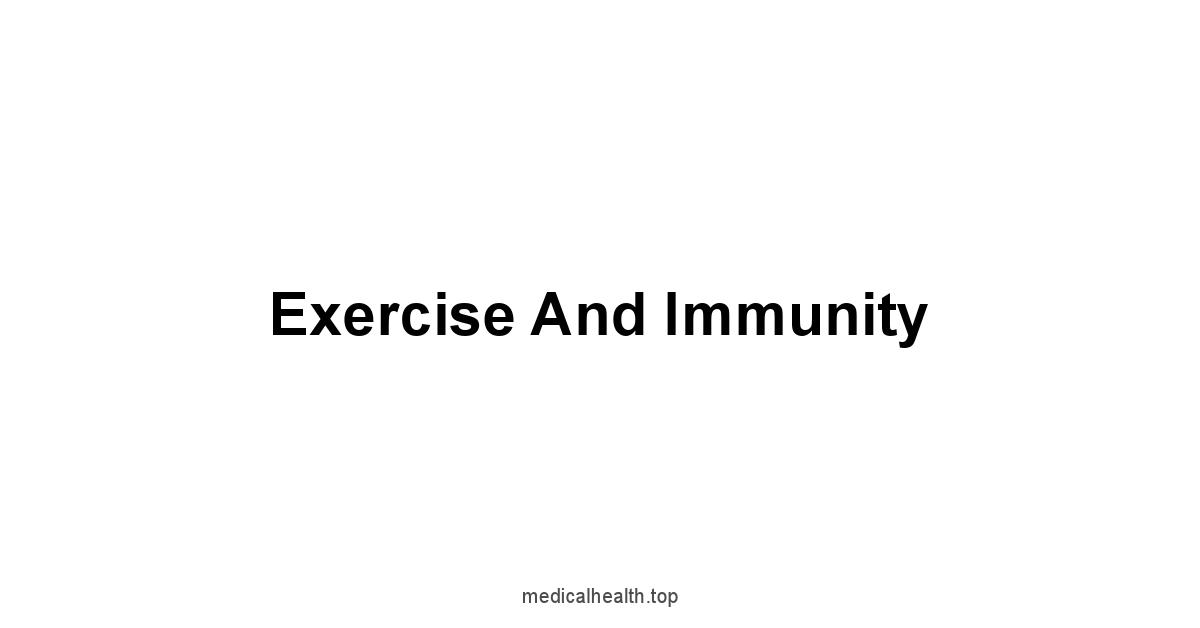
Exercise, it’s not just for your muscles, it’s crucial for a healthy immune system.
Regular, moderate exercise can strengthen your immune function.
It helps your body circulate immune cells more effectively, allowing them to fight off infections.
You need to move your body to keep your immune system strong, it’s not just about lifting weights.
The link between exercise and immunity is undeniable.
When you exercise, your body produces immune cells that help combat infections. However, overdoing it can have the opposite effect. It’s all about finding the right balance.
Too much intense exercise can weaken your immune system. You have to find that sweet spot.
Moderate Exercise is Key
Moderate exercise, that’s the sweet spot for your immune system.
Activities like brisk walking, swimming, cycling, or dancing are just what your body needs.
These types of activities boost immune cell circulation without overwhelming your body.
It’s about consistently moving your body, without pushing it to extremes.
It’s not about how hard you go, but how consistent you are.
Here are some examples of moderate exercise:
- Brisk Walking: 30 minutes most days of the week.
- Swimming: 30 minutes, a great low-impact workout.
- Cycling: 30 minutes, can be done indoors or outdoors.
- Dancing: 30 minutes, a fun way to exercise.
- Yoga: 30-60 minutes, helps with both physical and mental health.
Aim for at least 150 minutes of moderate-intensity exercise per week for optimal immune function.
It’s not about overdoing it, it’s about consistency and being smart about it.
The Immune Response to Exercise
When you exercise, you’re not just working your muscles, you’re also activating your immune system.
Physical activity increases the circulation of immune cells, such as lymphocytes and neutrophils, throughout your body.
This allows them to reach areas that need their help, fighting off infections more effectively.
It’s like sending reinforcements to the front lines.
Here’s how exercise enhances the immune response:
- Increased Immune Cell Circulation: More immune cells flow through the bloodstream, ready to attack pathogens.
- Reduced Inflammation: Moderate exercise can reduce chronic inflammation, improving immune function.
- Improved Immune Cell Function: Enhances the ability of immune cells to fight infections.
- Natural Killer NK Cell Activity: Boosts the activity of NK cells, which target infected and cancerous cells.
The key is to keep moving your body regularly, your immune system will become stronger by doing so.
Overdoing it: When to Rest
Overdoing it, that’s when exercise can weaken your immune system.
Strenuous, prolonged exercise can cause a temporary suppression of your immune function, making you more vulnerable to infections.
It’s called the “open window” period, when your body is more susceptible to illness.
It’s not about avoiding exercise, it’s about knowing when to rest.
Here are some signs that you might be overdoing it:
- Persistent Fatigue: Feeling tired all the time, even after rest.
- Frequent Illness: Getting sick more often than usual.
- Decreased Performance: Reduced ability to perform the same exercises as before.
- Prolonged Muscle Soreness: Sore muscles that don’t recover quickly.
- Mood Swings: Increased irritability, anxiety, or depression.
Rest and recovery are essential to get stronger.
Don’t ignore these signs, listen to your body, it’s telling you what it needs.
Hydration is Crucial
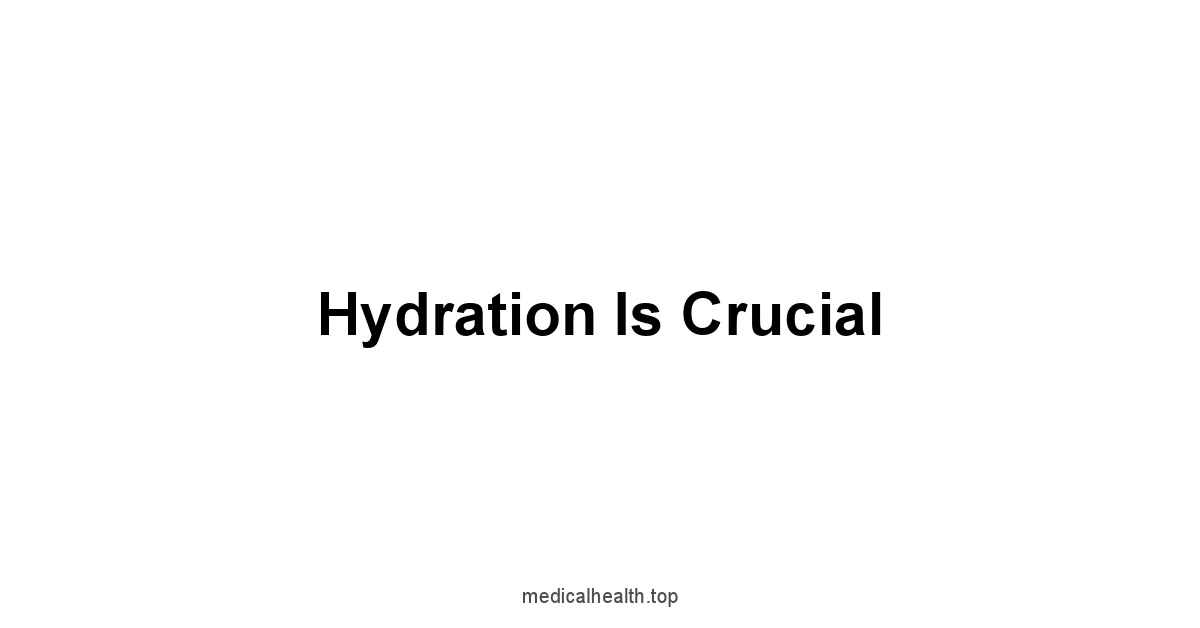
Hydration, it’s not just about quenching your thirst, it’s a key factor in your immune function.
Water is essential for every cell in your body, including your immune cells.
Dehydration can hinder your immune response and make you more susceptible to infections.
It’s simple, you need water to survive, and that includes a strong immune system.
Water is the medium in which all bodily functions take place, it’s the lifeblood of your body, it’s what your body is made out of. A dehydrated body is a struggling one.
Your immune system needs to function at its best to protect you. Water helps it do that. Don’t neglect this, it’s crucial.
Water’s Role in Immune Function
Water is essential for the proper function of your immune system.
It helps transport immune cells throughout your body, enabling them to reach infection sites quickly.
It also helps flush out toxins and waste products, supporting detoxification. Dehydration can compromise all of this. It’s not something you want.
Here are some key roles of water in immune function:
- Immune Cell Transportation: Helps immune cells circulate through the bloodstream and reach sites of infection.
- Lymphatic System Support: Maintains the proper functioning of the lymphatic system, a critical component of the immune system.
- Toxin Removal: Flushes out toxins and waste products, supporting overall health.
- Mucus Production: Keeps mucous membranes moist, which are essential for trapping and removing pathogens.
Make sure you drink enough water, it’s an investment in your immune system and your overall health.
Electrolyte Balance
Electrolytes, these are essential minerals that play a critical role in maintaining fluid balance and nerve function.
Sodium, potassium, magnesium, calcium, these are all electrolytes that your body needs.
They help regulate hydration, muscle contractions, and nerve signals, all of which are important for immune function.
When your electrolytes are out of balance, your body struggles.
Here’s why electrolyte balance is important:
- Hydration Regulation: Helps maintain proper fluid balance in the body.
- Muscle Function: Supports muscle contraction, movement.
- Nerve Function: Transmits nerve signals for overall body function.
- Immune Cell Function: Proper electrolyte levels support immune cell activity.
You need to make sure you’re replenishing these electrolytes through a balanced diet and by staying hydrated.
Water isn’t the only thing that matters, these minerals need to be there too.
Natural Hydrating Drinks
Water is the best choice for hydration, but there are other natural hydrating drinks that you can include in your diet.
These can provide added benefits, such as vitamins and antioxidants.
Coconut water, herbal teas, and fruit-infused water are all excellent options to help you stay hydrated. The following list gives some examples:
- Coconut Water: A good source of electrolytes, great for rehydration after exercise.
- Herbal Teas: Contain antioxidants, soothing and hydrating.
- Fruit-Infused Water: Adds flavor and vitamins, can be made with any fruit.
- Bone Broth: Rich in minerals and electrolytes, supporting overall health.
- Vegetable Juices: Nutrient-rich, hydrating.
These beverages can contribute to your overall hydration and provide added nutrients.
Don’t rely on sugary drinks, choose wisely and your body will thank you.
Sunlight and Vitamin D
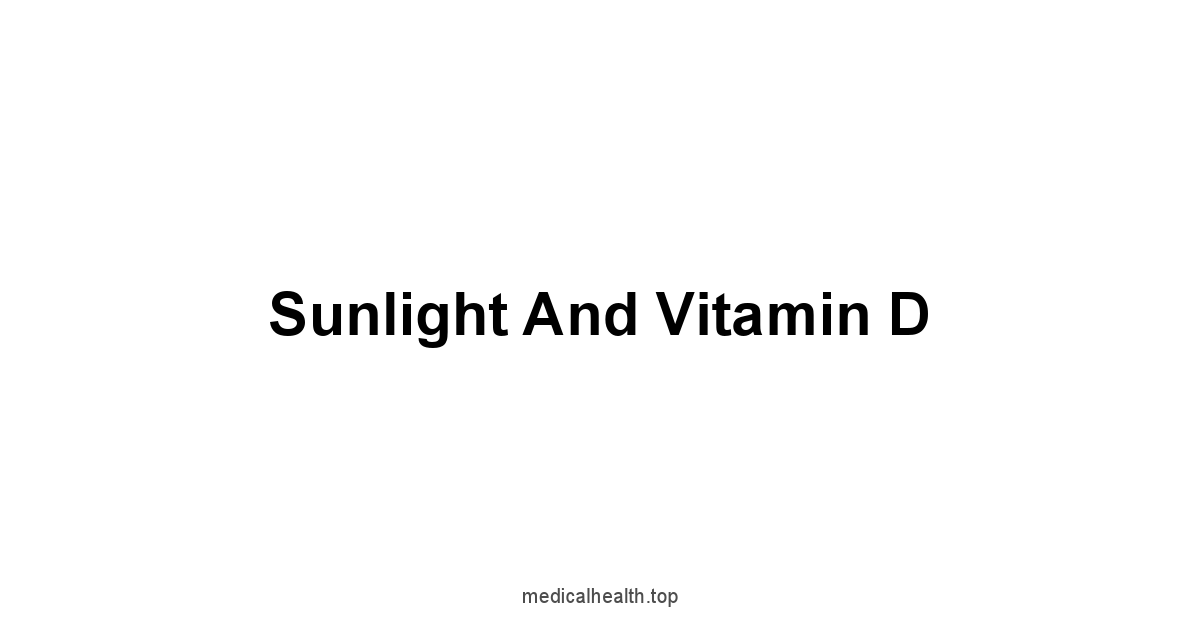
Sunlight, it’s not just for warm days, it’s also crucial for your vitamin D levels. Vitamin D plays a key role in immune function. It helps your immune cells fight off infections.
A deficiency in vitamin D can weaken your immune system. It’s something you need to pay attention to.
You can’t stay hidden in the dark, your body needs sunlight.
The connection between sunlight and vitamin D is simple: your skin produces vitamin D when exposed to sunlight.
It’s an essential nutrient for your body, and a strong immune system.
Getting enough sunlight is vital for your overall health.
It’s not just about feeling good, it’s about keeping your defenses up. Don’t underestimate its importance.
Vitamin D’s Immune Role
Vitamin D is not just for strong bones, it’s also a key player in your immune system.
It modulates immune responses by supporting immune cell activity. It helps you fight off viruses and bacteria.
A deficiency in vitamin D can lead to a weakened immune response. It’s something you want to be aware of.
Your body is telling you what it needs, you should listen to it.
Here are some of the key roles of vitamin D in immune function:
- Immune Cell Modulation: Supports the activity of immune cells, including T cells and B cells.
- Antimicrobial Peptide Production: Stimulates the production of antimicrobial peptides, which help fight infections.
- Inflammation Reduction: Can help reduce chronic inflammation, strengthening overall immunity.
- Respiratory Health: Plays a role in reducing the risk of respiratory infections.
Make sure you get enough vitamin D to keep your immune system strong and healthy. It’s a non-negotiable.
Sun Exposure Guidelines
Getting enough sunlight is important for producing vitamin D, but you also need to be cautious of overexposure.
The amount of sun exposure you need depends on factors like skin tone, time of day, and location.
Generally, 10-30 minutes of midday sun exposure a few times a week is enough for most people.
However, you should always be careful to avoid sunburn.
It’s about getting the right balance and not going to the extreme.
Here are some practical tips for safe sun exposure:
- Time of Day: Midday sun is the most effective for vitamin D production.
- Duration: 10-30 minutes a few times a week is usually enough.
- Skin Exposure: Expose arms, legs, and back, but avoid getting burned.
- Sunscreen: Use sunscreen when spending longer times in the sun to prevent sun damage.
- Location: People in northern climates, or who have darker skin, might need more sun exposure.
Listen to your body, get enough sun but protect your skin from the sun’s damaging effects.
Supplementing Vitamin D
Supplementing vitamin D is an option if you’re not getting enough sun exposure.
If you live in an area where sunlight is scarce, or if you have darker skin, you might need to consider a vitamin D supplement. A blood test can determine if you’re deficient.
Always consult with your healthcare provider before starting any new supplements.
It’s not about guessing, it’s about making sure you are taking what you need.
Here are some guidelines for vitamin D supplementation:
- Consult a Healthcare Provider: Get a blood test to determine your vitamin D levels.
- Dosage: The recommended dosage can vary, follow your healthcare provider’s advice.
- Type of Supplement: Vitamin D3 cholecalciferol is more effective than D2 ergocalciferol.
- Timing: Take supplements with food for better absorption.
- Consistency: Take supplements daily for better results.
If you need them, do not hesitate to add them to your routine, this can help boost your immune system when getting it naturally is not possible.
Herbs and Supplements
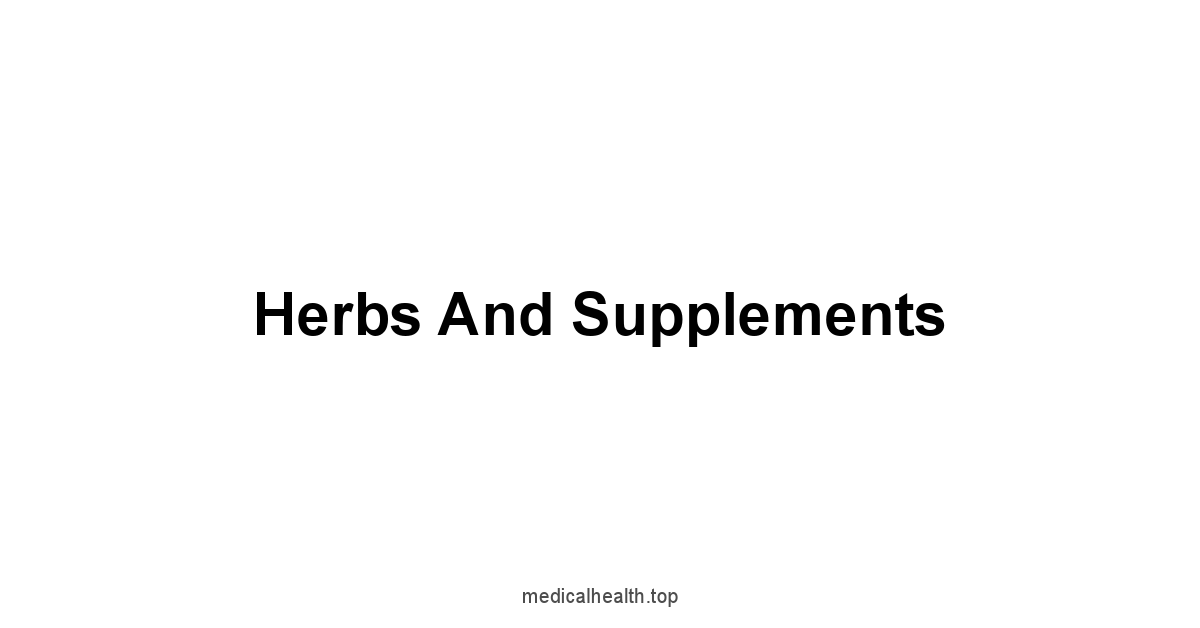
Herbs and supplements, they are not magic bullets, but they can be valuable allies in your quest for a strong immune system.
Some herbs and supplements have properties that can boost your immune response.
It’s about choosing the right ones and using them wisely.
It’s not about replacing a healthy diet and lifestyle, but about supporting it.
Not all herbs and supplements are created equal, you should choose wisely and know what each one can do for you.
When it comes to herbs and supplements, there’s a lot of false information out there. You need to be careful.
Research what each one does and then you can decide which ones are right for you. Don’t just blindly trust everything you hear.
Elderberry: The Immune Booster
Elderberry, it’s a well-known immune booster that has been used for centuries.
It’s packed with antioxidants and has antiviral properties.
It can help shorten the duration and severity of colds and flu.
Elderberry is one of those herbs that can help you get through the cold and flu season.
It’s not a cure-all, but it can definitely help you fight those viruses.
Here are some of the key benefits of elderberry:
- Antiviral Properties: Helps to inhibit viral replication.
- Antioxidant-Rich: High in antioxidants, protecting cells from damage.
- Cold and Flu Relief: Helps shorten the duration and severity of colds and flu.
- Immune Support: Can boost overall immune function.
It’s available in different forms, syrups, lozenges, or capsules, use them to your advantage.
Ginger and its Anti-Inflammatory Effects
Ginger, it’s not just a cooking spice, it’s a powerful anti-inflammatory.
It can help reduce inflammation in the body and relieve symptoms of colds and flu.
Ginger also has antioxidant properties, which help protect cells from damage.
This is a great addition to your daily diet that can do wonders for your health. This root packs a lot of punch.
Here’s how ginger can help your immune system:
- Anti-Inflammatory: Helps reduce inflammation throughout the body.
- Antioxidant Properties: Protects cells from oxidative stress.
- Symptom Relief: Can alleviate cold and flu symptoms like nausea and congestion.
- Improved Circulation: Supports healthy circulation, helping immune cells reach areas that need them.
You can use it in cooking, make ginger tea, or use a ginger supplement, there are plenty of ways to add it to your daily routine.
Zinc for Cellular Immunity
Zinc, it’s an essential mineral for cellular immunity.
It plays a critical role in the development and function of immune cells.
A zinc deficiency can lead to a weakened immune response.
It’s something you should pay attention to if you want to keep your immune system strong.
It’s not a mineral that your body produces on its own, you must get it from your diet.
Here’s why zinc is so important for your immune system:
- Immune Cell Development: It’s essential for the development and function of immune cells.
- Wound Healing: Supports the body’s ability to heal wounds.
- Antiviral Properties: Can inhibit viral replication, shortening the duration of illnesses.
- Inflammation Reduction: Helps reduce inflammation in the body.
You can find zinc in foods like meat, shellfish, nuts, and seeds.
You can also use supplements to keep your levels in check.
The Role of Vitamin C
Vitamin C, this is a powerful antioxidant that supports many immune functions.
It’s a classic that you should include in your diet, It’s not just for fighting colds.
Vitamin C helps with the production and function of immune cells.
It protects cells from damage caused by free radicals.
You need to keep your levels up to maintain a strong and healthy immune system.
Here’s how vitamin C supports your immune system:
- Antioxidant Protection: Protects immune cells from damage caused by free radicals.
- Immune Cell Production: Boosts the production and function of immune cells.
- Cold and Flu Relief: Can help reduce the severity and duration of colds.
- Wound Healing: Plays a role in collagen production and wound healing.
It’s readily available in fruits and vegetables, choose the colorful ones to make sure you get enough of it.
Avoid Immune Suppressors
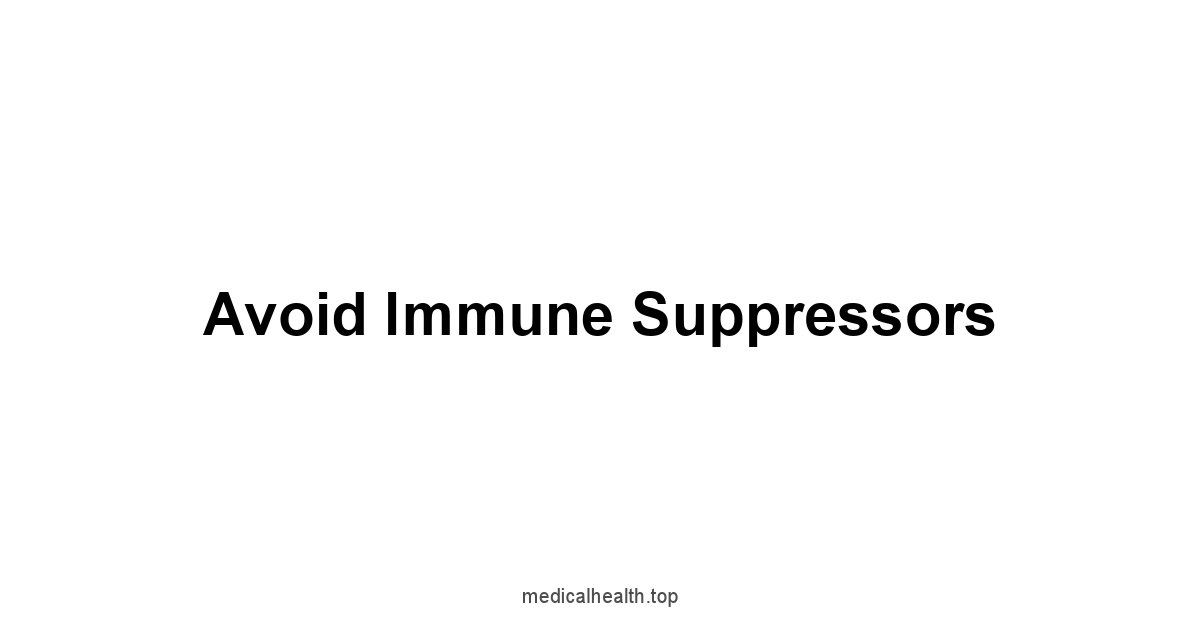
Avoiding immune suppressors, this is as important as boosting your immune system.
Certain foods and habits can weaken your immune response and make you more susceptible to infections.
You need to be aware of these and make conscious choices to avoid them.
It’s not just about what you do, it’s also about what you avoid.
This is something that many people do not take into consideration, and it’s important.
Certain substances can suppress your immune function, making it harder for your body to fight off infections.
Processed foods, alcohol, smoking, and sugar are some of the worst offenders.
It’s about understanding what weakens you and avoiding it at all costs.
It’s not about restricting yourself completely, it’s about knowing what to avoid most of the time.
Processed Foods and Immunity
Processed foods, they are often loaded with unhealthy fats, sugars, and artificial additives. They can wreak havoc on your gut health.
They also promote inflammation and weaken your immune system.
These types of foods provide very little nutrition for your body.
The problem with these types of foods is that they replace the good ones.
It’s not about not eating them at all, it’s about avoiding them most of the time.
Here’s how processed foods negatively affect your immune system:
- Gut Dysbiosis: Disrupt the balance of gut microbiota, weakens the gut.
- Inflammation: Promote chronic inflammation throughout the body.
- Nutrient Deficiency: Lack essential vitamins, minerals, and antioxidants.
- Weakened Immune Response: Make it harder for the body to fight off infections.
Choose whole, unprocessed foods over processed ones as often as possible to keep your immune system strong.
It’s not about making the easy choice, it’s about making the right one.
The Effects of Alcohol and Smoking
Alcohol and smoking, these are two habits that can severely compromise your immune system.
Alcohol in excess can suppress immune function, making you more vulnerable to infections.
Smoking damages your respiratory system, making you more susceptible to respiratory illnesses.
These are the type of habits you want to avoid to keep your immune system at its best.
Here are the specific negative effects of these two habits on your immune system:
- Alcohol:
- Suppresses immune cell activity.
- Increases inflammation.
- Disrupts gut health.
- Interferes with sleep.
- Smoking:
Final Thoughts
In the end, strengthening your immune system isn’t about a single action or a magic pill, it’s a lifestyle, a combination of mindful choices that, over time, fortify your body’s defenses.
You’ve seen how the gut, with its complex ecosystem of microbes, is a major player, that diet plays a crucial role, and that sleep, stress, and exercise are not just buzzwords but non-negotiable pillars for your health.
Each one of them, working in harmony, creates the foundation for resilience against illness.
The power to build a robust immune system is truly in your hands.
Data from studies indicates that individuals who prioritize plant-rich diets, consistently get enough sleep, manage stress effectively, and engage in regular moderate exercise have a significantly lower risk of infections and better overall health outcomes.
It is up to you to start taking control of your well-being, and these guidelines aren’t just a suggestion, they’re a roadmap to a healthier, stronger you. Start small, but start strong.
Consider these steps not as individual actions but as an integrated approach.
When you nourish your gut with prebiotics and probiotics, when you load your plate with vibrant, nutrient-rich plants, and you give your body the rest it needs, you’re not just ticking off boxes, you’re creating a synergy that amplifies the power of each habit.
Embrace a holistic approach, and you’ll find that your immune system will respond in kind.
It’s not about doing one thing perfectly, it’s about the overall consistent effort.
So, make the necessary changes and take control of your health, your body depends on you.
The numbers from research are compelling, but the real proof is in how you feel and how your body responds to these changes.
Let this be your guide and motivation to consistently prioritize your health.
It’s about showing up every day and making choices that empower your immune system, not diminish it.
Your body is ready to fight if you give it the tools, choose wisely and stay strong.
Frequently Asked Questions
How does my gut affect my immune system?
It’s a battlefield where your immune system is trained. A healthy gut, that means a strong immune system. A weak one, well, that leaves you vulnerable.
You should understand this connection, then you can take control of your health.
What’s the deal with probiotics and prebiotics?
Probiotics, they’re the good guys, live microorganisms that help your gut. Prebiotics, they’re fuel for those good guys.
Think of it as reinforcing your gut’s defenses and feeding them what they need. Together, they make your gut strong.
How does what I eat affect my immunity?
What you eat, it directly impacts your gut and therefore your immune system.
A diet high in junk food, that messes things up, it lets the bad bacteria win.
Eat a balanced diet, with plenty of fruits and vegetables, and you will feed the good guys in your gut.
Why is a plant-rich diet so important?
A plant-rich diet, it’s not a trend, it’s a path to stronger immunity.
Plants are full of vitamins, minerals, and antioxidants.
They help you fight off invaders and keep your body running strong.
What are some essential vitamins and minerals for my immune system?
Vitamins and minerals, they are the building blocks of a healthy immune system.
Vitamin C, Vitamin D, zinc, and selenium, just to name a few, are crucial for proper immune function. You can’t win a war with an empty army.
What about antioxidants, do they really work?
Antioxidants, they’re your defense against cellular damage.
They help your body fight and keep the immune system balanced.
How much sleep do I actually need?
Sleep, it’s as essential as food and water.
Seven to nine hours of quality sleep, that’s what adults need.
It’s during this time your body repairs and your immune system prepares for the next day.
What are the effects of sleep deprivation?
Sleep deprivation, it does more than just make you feel tired.
It messes with your immune system and increases your susceptibility to colds and flu.
If you don’t sleep enough, your body isn’t at its best.
What can I do to manage stress?
Mindfulness, meditation, physical activity, deep breathing, these are tools to manage your stress so it doesn’t take control of you.
Is exercise really important for my immune system?
Exercise, it’s crucial for a healthy immune system.
It helps your body circulate immune cells more effectively. It’s not just about lifting weights.
How important is water for my immune system?
Hydration, it’s a key factor in your immune function.
Water is essential for every cell, including your immune cells. Dehydration can weaken your immune response. It’s simple, you need water to survive.
How does sunlight affect my immunity?
Sunlight, it’s crucial for your vitamin D levels. Vitamin D plays a key role in immune function.
Your skin produces vitamin D when exposed to sunlight. Don’t stay hidden in the dark.
Are herbs and supplements worth considering?
Herbs and supplements, they are not magic bullets, but they can be valuable allies.
Elderberry, ginger, zinc, and Vitamin C, they’re all known for supporting immune function. Choose wisely, don’t blindly trust everything.
What should I try to avoid to keep my immunity strong?
Avoiding immune suppressors is just as important as boosting your immune system.
Processed foods, alcohol, smoking, and too much sugar, they all can weaken your defenses. Be aware and make conscious choices.

